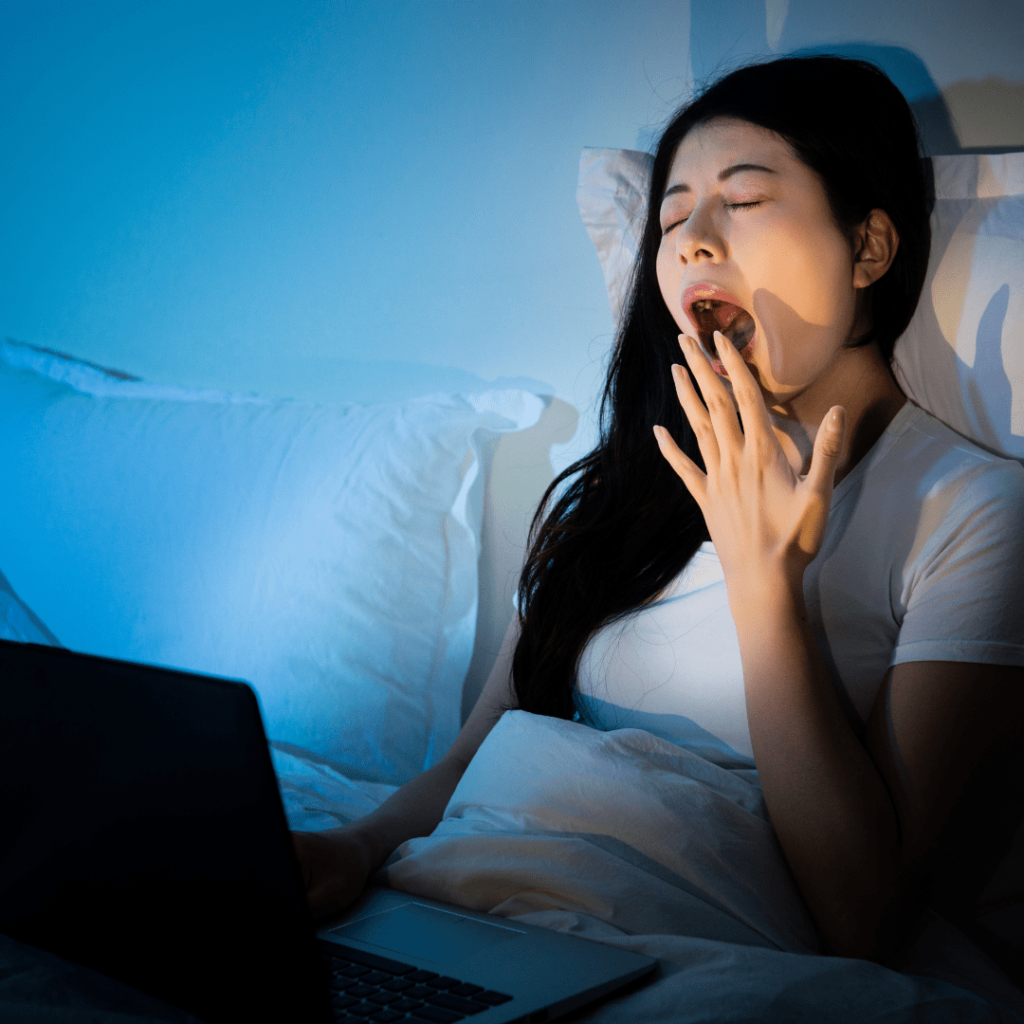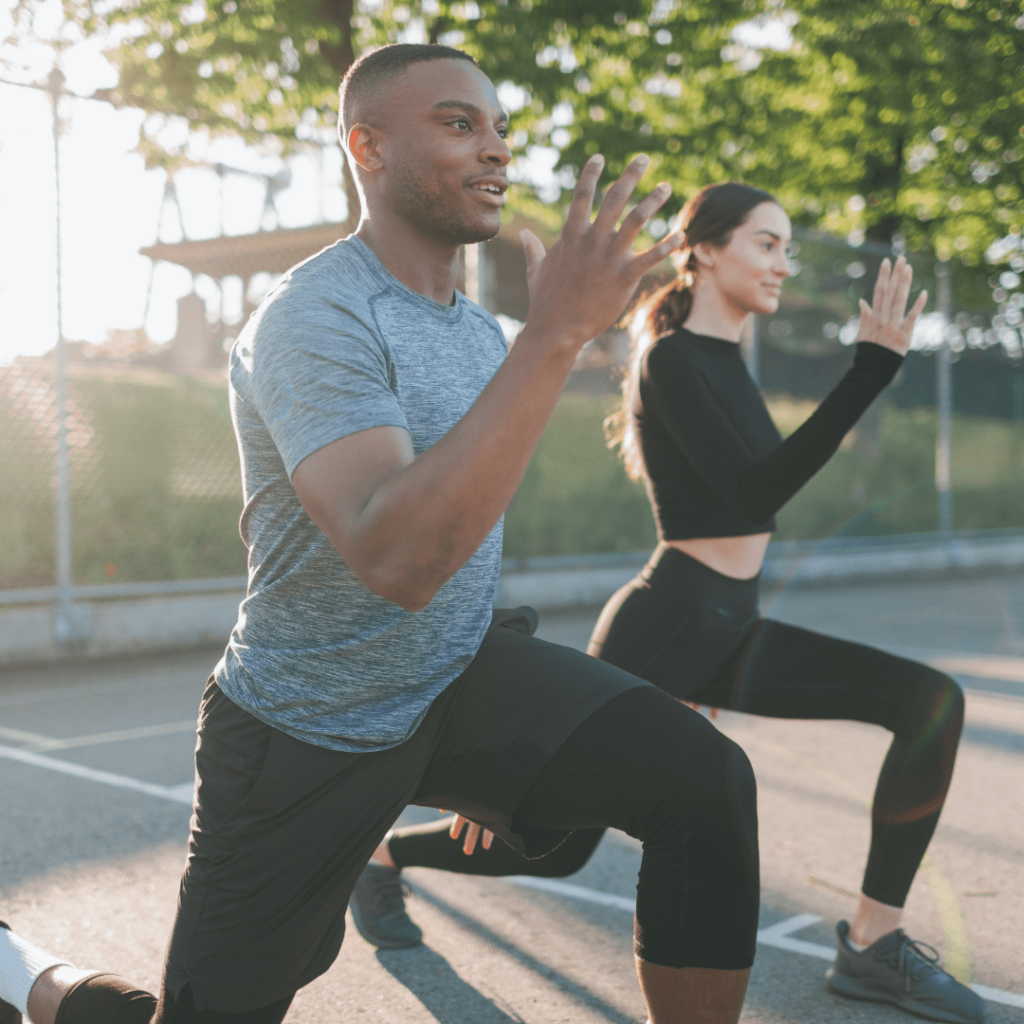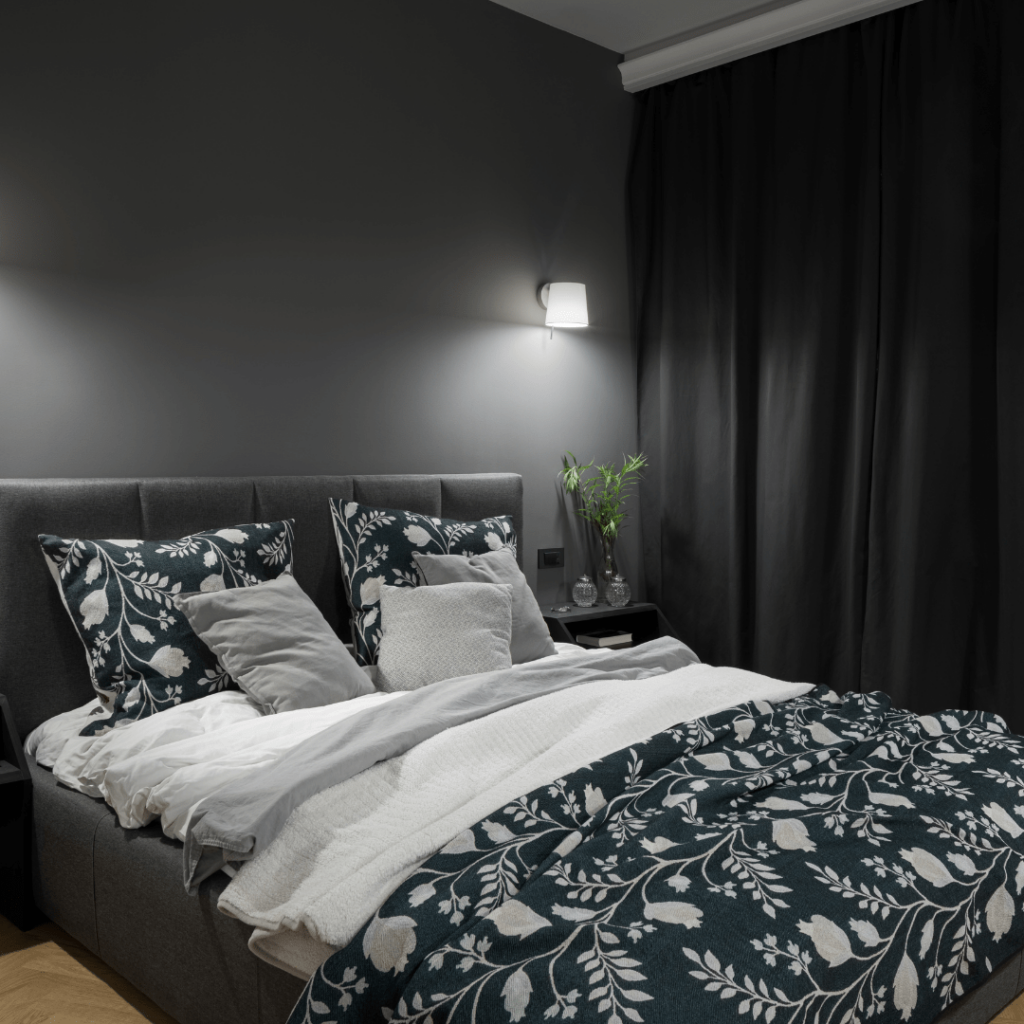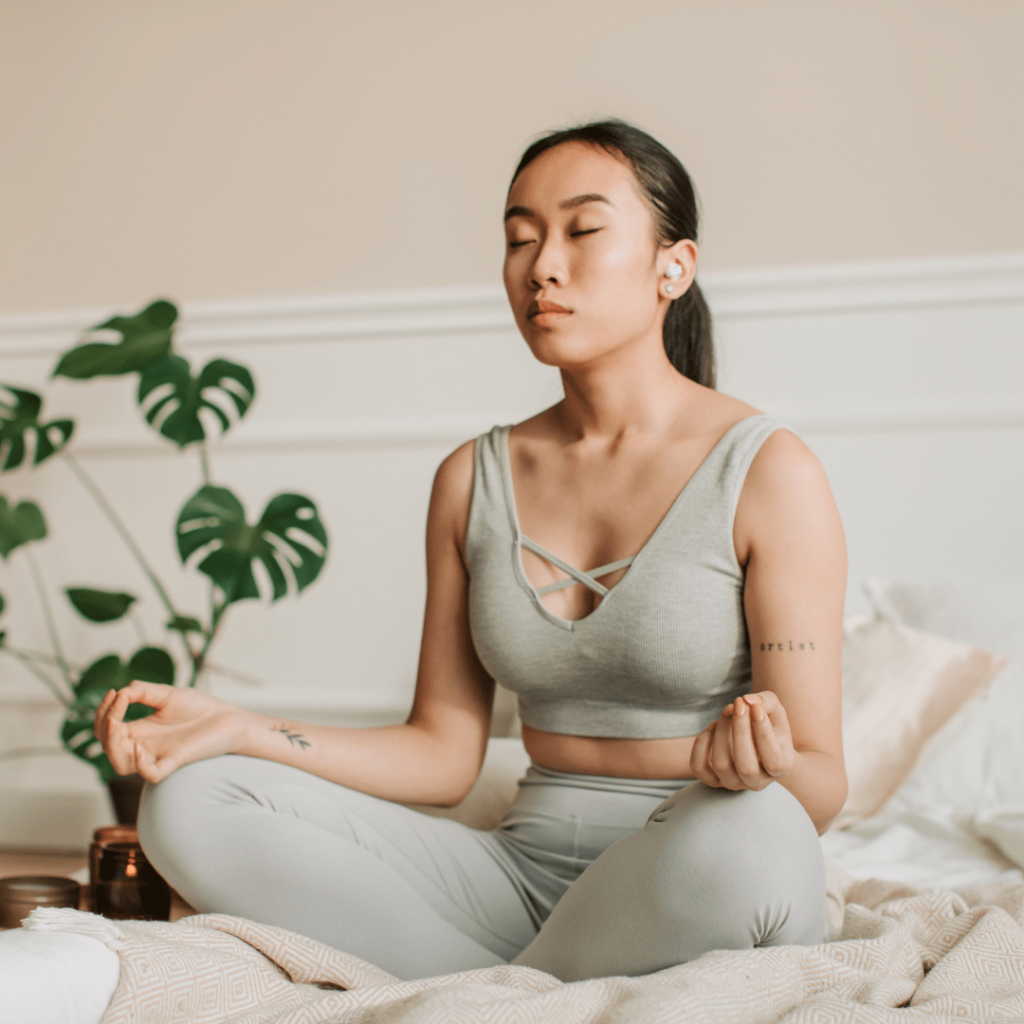What is Sleep Hygiene?

I don’t know about you, but the quality of my sleep can affect the quality of my days, that’s why I take it seriously. Just as we maintain our own personal hygiene, it’s important to maintain our sleep hygiene.
WHAT IS SLEEP HYGIENE?
‘Sleep hygiene’ refers to healthy habits, behaviours, and environmental factors that can be adjusted to help you have a good night’s sleep.
Strong sleep hygiene means having both a bedroom environment and daily routines that promote consistent, uninterrupted sleep. Keeping a stable sleep schedule, making your bedroom comfortable and free of disruptions, following a relaxing pre-bed routine, and building healthy habits during the day can all contribute to ideal sleep hygiene.
Every sleeper can tailor their sleep hygiene practices to suit their needs. In the process, you can harness positive habits to make it easier to sleep soundly throughout the night and wake up well-rested.
Obtaining healthy sleep is important for both physical and mental health, improving productivity and overall quality of life. Everyone, from children to older adults, can benefit from better sleep, and sleep hygiene can play a key part in achieving that goal.
Crafting sustainable and beneficial routines makes healthy behaviours feel almost automatic, creating an ongoing process of positive reinforcement.
We humans have an impressive ability to make our habits serve our long-term interests. Building an environment and set of routines that promote our goals can really pay off.
Have you heard of the circadian rhythm? I believe it’s one of the most important rhythms to get aligned with.
To break it down, the circadian rhythm is the 24-hour internal biological clock that regulates various physiological processes and influences your sleep-wake cycle, hormone production, body temperature, and metabolism, among other things. Your circadian rhythm should always be in harmony.

Cultivate Healthy Daily Habits
It’s not just bedtime habits that play a part in getting good sleep. Incorporating positive routines during the day can support your circadian rhythm and limit sleep disruptions.
Here are some of my fave habits
1. Get Daylight Exposure:
Sunlight is one of the key drivers of circadian rhythms that can encourage quality sleep. It’s best to get sunlight exposure as soon as possible after waking up so your body gets the Vitamin D it needs, and your neurons will signal to your brain it’s daytime, suppress melatonin production, and reset your circadian rhythm for the day. The earlier you activate this, the earlier you get sleepy at night!
2. Be Physically Active:
Regular exercise can make it easier to sleep at night and also delivers a host of other health benefits. Naturally, the body will feel tired after bursts of activity, so having afternoon workouts will be great to transition yourself to sleeping better at night. Evening walks after dinner are also great if you’re not into high-intensity exercise. A 30-minute brisk stroll around the park will do the trick.
3. Reduce Alcohol Consumption:
Alcohol may make it easier to fall asleep, but the effects wear off, disrupting sleep later in the night. As a result, it’s best to moderate alcohol consumption and avoid it later in the evening. Studies have shown that higher alcohol consumption was associated with poorer sleep quality and higher odds of having snoring and short sleep duration. It increases the risk of sleep disorders by interrupting the respiratory system during sleep and competing with neuroimmune and neurotransmitter systems, as well as decrease the rapid eye movement sleep percentage of the total sleep period, making you wake up prematurely.
4. Cut Down on Caffeine starting in the Afternoon:
Because it’s a stimulant, caffeine can keep you wired even when you want to rest, so try to avoid it later in the day. Also be aware if you’re consuming lots of caffeine to try to make up for lack of sleep. According to the Journal of Clinical Sleep Medicine, 400 mg of caffeine taken even at 6 hours before bedtime reduced sleep by more than 1 hour. This degree of sleep loss, if experienced over multiple nights, may have detrimental effects on daytime function. JCSM suggests the common practice of afternoon consumption of caffeine should be restricted to before 17:00. Take note that caffeine is not present in coffee alone, it’s also commonly found in chocolates, energy drinks, sodas, and teas.
5. Don’t Dine Late:
Eating dinner late, especially if it’s a big, heavy, or spicy meal, can mean your muscles are still digesting when it’s time for bed. In general, any food or snacks before bed should be on the lighter side. Results from a study conducted by Chung et. al, show that eating within 3 hours of your bedtime is associated with a 40% increase in the odds of nocturnal awakening, so it’s best to eat your dinner more than 3 hours before hitting the hay.
6. Restrict In-Bed Activity:
To build a link in your mind between sleep and being in bed, it’s best to only use your bed for sleep – with sex being the one exception. Stop using your phone the moment you wake up or play video games from your bed. Make it a habit to get up and start the day once you open your eyes. Turn on the lights, open the curtains, and make that walk to the bathroom so your body will get used to moving around to start the day.

Optimise Your Bedroom
A central component of sleep hygiene beyond just habits is your sleep environment. To fall asleep more easily, you want your bedroom to emanate tranquillity.
1. Have a Comfortable Mattress and Pillow:
Your sleeping surface is critical to comfort and pain-free sleep, so choose the best mattress and best pillow for your needs wisely. A low toxic mattress like a Koala mattress is Amazing and way more affordable than other mattresses!
2. Use Excellent Bedding:
The sheets and blankets are the first thing you touch when you get into bed, so it’s beneficial to make sure they match your needs and preferences. Choose low tox.
3. Set a Cool Yet Comfortable Temperature:
Fine-tune your bedroom temperature to suit your preferences, but err on the cooler side (around 18 to 22 degree Celsius).
4. Block Out Light:
Use heavy curtains or an eye mask to prevent light from interrupting your sleep.
5. Drown Out Noise:
Ear plugs can stop noise from keeping you awake, and if you don’t find them comfortable, you can try a white noise machine or even a fan to drown out bothersome sounds.
6. Try Calming Scents:
Light smells, such as lavender, may induce a calmer state of mind and help cultivate a positive space for sleep.
7. Use a red light
such as the Block Blue Light reading lamp. I use this nightly and you can use my affiliate link to get one! LINK

Follow a Nightly Routine
How you prepare for bed can determine how easily you’ll be able to fall asleep.
1. Keep Your Routine Consistent:
Following the same steps each night, including things like putting on your pyjamas and brushing your teeth, can reinforce in your mind that it’s bedtime.
2. Budget 30 Minutes For Winding Down:
Take advantage of whatever puts you in a state of calm such as soft music, light stretching, reading, and/or relaxation exercises.
3. Dim Your Lights:
Try to keep away from bright lights because they can hinder the production of melatonin, a hormone that the body creates to facilitate sleep. Block Blue Light has some EPIC things to help, click on my affiliate link here.
4. Unplug From Electronics:
Build in a 30-60 minute pre-bed buffer time that is device-free. Cell phones, tablets, and laptops cause mental stimulation that is hard to shut off and also generate blue light that may decrease melatonin production. You can also try using your phone’s Bedtime Mode where the screen turns to black and white and sets the mode to Do Not Disturb 30 minutes before your scheduled bedtime.
5. Test Methods of Relaxation:
Instead of making falling asleep your goal, it’s often easier to focus on relaxation. Meditation, mindfulness, paced breathing, and other relaxation techniques can put you in the right mindset for bed.
6. Don’t Toss and Turn:
It helps to have a healthy mental connection between being in bed and actually being asleep. For that reason, if after 20 minutes you haven’t gotten to sleep, get up and stretch, read, or do something else calming in low light before trying to fall asleep again.
7. Stop drinking water and eating about 2 hours before bed so that all your body needs to focus on is rest, instead of digesting food and needing to pee.
Good sleep hygiene is essential for getting the restful and restorative sleep your body needs. With the right habits and practices in place, you can improve the quality of your sleep and wake up feeling refreshed and energised. And, it makes you eat better the next day as well as have a stable mood.
Which habit will you work on?
